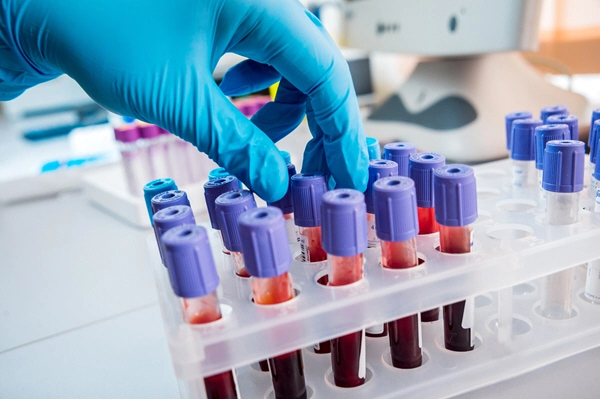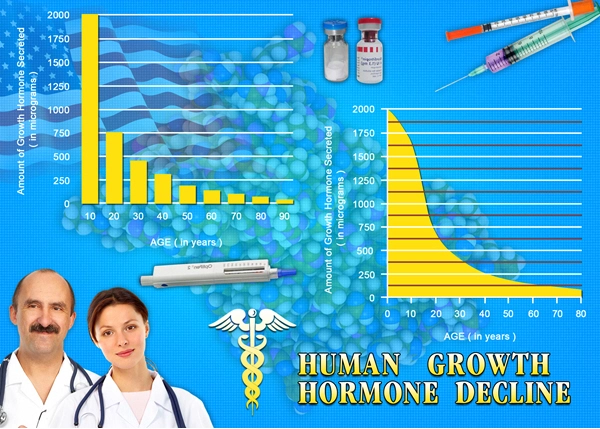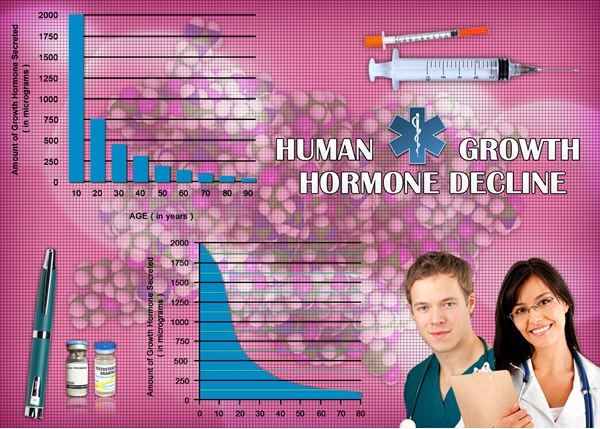Introduction
Testicular health is a critical aspect of men's overall well-being, yet many American males face significant psychological barriers when it comes to seeking appropriate medical care. This article delves into the psychological factors that deter men from addressing testicular health issues and offers strategies to overcome these barriers, promoting better health outcomes.
The Prevalence of Psychological Barriers
A considerable number of American men experience reluctance in seeking medical attention for testicular concerns. This hesitation often stems from a combination of fear, embarrassment, and societal pressures. According to recent studies, up to 30% of men delay or avoid testicular examinations due to these psychological factors. Understanding these barriers is the first step towards encouraging more proactive health behaviors.
Fear and Anxiety
One of the primary psychological barriers to seeking testicular health care is fear. Men may fear the possibility of discovering a serious condition, such as testicular cancer. This fear can be paralyzing, leading to avoidance of medical consultations. Additionally, anxiety about the medical procedures themselves, including the discomfort of examinations or the potential for invasive treatments, can further deter men from seeking care.
Embarrassment and Stigma
Embarrassment is another significant barrier. The intimate nature of testicular examinations can make men feel vulnerable and exposed, leading to avoidance. Moreover, societal stigma surrounding male reproductive health issues can exacerbate feelings of shame, making men less likely to discuss their concerns openly or seek professional help.
Societal and Cultural Pressures
Cultural norms and societal expectations often emphasize masculinity and stoicism, discouraging men from expressing health concerns or seeking help. The pressure to appear strong and invulnerable can lead men to downplay or ignore symptoms, even when they are aware of the potential risks. This cultural barrier is particularly pronounced in communities where traditional gender roles are strongly upheld.
Strategies to Overcome Psychological Barriers
To address these psychological barriers, it is essential to implement strategies that encourage men to prioritize their testicular health. Education plays a crucial role in this process. By providing clear, accessible information about the importance of regular testicular examinations and the early detection of conditions like testicular cancer, men can be empowered to take proactive steps towards their health.
Creating Supportive Environments
Healthcare providers can contribute to overcoming these barriers by creating supportive and non-judgmental environments. Training medical professionals to handle sensitive topics with empathy and professionalism can help alleviate feelings of embarrassment and fear. Additionally, offering private consultation spaces and clear communication about procedures can enhance patient comfort and trust.
Promoting Open Dialogue
Encouraging open dialogue about testicular health within families, peer groups, and communities can also help break down psychological barriers. By normalizing conversations about men's health issues, we can reduce the stigma and encourage more men to seek timely medical care. Public health campaigns that feature relatable stories and testimonials from men who have successfully navigated testicular health concerns can be particularly effective.
Leveraging Technology
Technology offers another avenue for overcoming psychological barriers. Telemedicine and online health resources can provide men with the privacy and convenience they need to seek information and consultations. Mobile apps that guide users through self-examination techniques can also empower men to take charge of their health from the comfort of their own homes.
Conclusion
The psychological barriers to seeking testicular health care among American males are significant but not insurmountable. By understanding the roots of fear, embarrassment, and societal pressures, we can develop targeted strategies to encourage more men to prioritize their health. Through education, supportive healthcare environments, open dialogue, and the use of technology, we can help American males overcome these barriers and improve their overall well-being.

- Navigating Life After Testicular Cancer: A Guide for American Male Survivors [Last Updated On: February 19th, 2025] [Originally Added On: February 19th, 2025]
- Routine Check-ups Crucial for American Men's Testicular Health and Early Cancer Detection [Last Updated On: March 17th, 2025] [Originally Added On: March 17th, 2025]
- Testicular Health: Essential Guide for American Males' Physical and Mental Well-being [Last Updated On: March 17th, 2025] [Originally Added On: March 17th, 2025]
- Economic Challenges of Testicular Cancer Treatment for American Males: Costs and Support [Last Updated On: March 17th, 2025] [Originally Added On: March 17th, 2025]
- Testicular Health's Impact on Prostate Wellness in American Men: A Scientific Insight [Last Updated On: March 19th, 2025] [Originally Added On: March 19th, 2025]
- Testicular Health and Male Infertility: Diagnosis, Treatment, and Supportive Care [Last Updated On: March 19th, 2025] [Originally Added On: March 19th, 2025]
- Exercise Enhances Testicular Health in American Males: A Comprehensive Review [Last Updated On: March 20th, 2025] [Originally Added On: March 20th, 2025]
- Understanding Testicular Pain: Causes, Diagnosis, and Treatment for American Men [Last Updated On: March 20th, 2025] [Originally Added On: March 20th, 2025]
- Stress Impact on Testicular Health: Insights for American Men [Last Updated On: March 21st, 2025] [Originally Added On: March 21st, 2025]
- Diabetes and Testicular Health: Impacts and Management Strategies for American Men [Last Updated On: March 21st, 2025] [Originally Added On: March 21st, 2025]
- Testicular Health and Cardiovascular Disease: A Critical Link for American Men [Last Updated On: March 21st, 2025] [Originally Added On: March 21st, 2025]
- Educating Young American Males on Testicular Health: Importance and Impact [Last Updated On: March 21st, 2025] [Originally Added On: March 21st, 2025]
- Smoking's Harmful Effects on Testicular Health in American Males: A Comprehensive Analysis [Last Updated On: March 21st, 2025] [Originally Added On: March 21st, 2025]
- Testicular Cancer Screening: Guidelines and Self-Exam Techniques for American Men [Last Updated On: March 21st, 2025] [Originally Added On: March 21st, 2025]
- Ultrasound: Revolutionizing Testicular Health Diagnosis in American Males [Last Updated On: March 22nd, 2025] [Originally Added On: March 22nd, 2025]
- Testicular Health and Autoimmune Disorders: Insights for American Men [Last Updated On: March 22nd, 2025] [Originally Added On: March 22nd, 2025]
- Anabolic Steroids: Risks and Impacts on American Men's Testicular Health [Last Updated On: March 22nd, 2025] [Originally Added On: March 22nd, 2025]
- Testicular Health and Hormone Therapy: Essential Insights for American Men [Last Updated On: March 22nd, 2025] [Originally Added On: March 22nd, 2025]
- Viral Infections and Testicular Health: Impacts on Fertility in American Males [Last Updated On: March 23rd, 2025] [Originally Added On: March 23rd, 2025]
- Sleep Quality's Impact on Testicular Health: A Vital Link for American Males [Last Updated On: March 24th, 2025] [Originally Added On: March 24th, 2025]
- Radiation Therapy's Impact on Testicular Health: Insights for American Males [Last Updated On: March 24th, 2025] [Originally Added On: March 24th, 2025]
- Community Support Enhances Testicular Health Awareness in American Males [Last Updated On: March 24th, 2025] [Originally Added On: March 24th, 2025]
- Occupational Hazards and Testicular Health: Risks, Prevention, and Screening for American Workers [Last Updated On: March 24th, 2025] [Originally Added On: March 24th, 2025]
- Illicit Drugs' Impact on Testicular Health: Risks and Prevention for American Men [Last Updated On: March 25th, 2025] [Originally Added On: March 25th, 2025]
- Genetic Counseling's Vital Role in Preventing Testicular Cancer: Latest Advances [Last Updated On: March 25th, 2025] [Originally Added On: March 25th, 2025]
- Testicular Health: Vital for Preventing Chronic Diseases in American Males [Last Updated On: March 25th, 2025] [Originally Added On: March 25th, 2025]
- Endocrine Disruptors' Impact on Testicular Health: Risks and Mitigation for American Males [Last Updated On: March 25th, 2025] [Originally Added On: March 25th, 2025]
- Testicular Health in Aging American Men: Hormones, Monitoring, and Treatment Options [Last Updated On: March 25th, 2025] [Originally Added On: March 25th, 2025]
- Nutrition's Vital Role in American Men's Testicular Health and Fertility [Last Updated On: March 25th, 2025] [Originally Added On: March 25th, 2025]
- Public Health Campaigns Boost Testicular Health Awareness and Self-Exams in American Men [Last Updated On: March 26th, 2025] [Originally Added On: March 26th, 2025]
- Testicular Health and Reproductive Rights: Empowering American Men [Last Updated On: March 26th, 2025] [Originally Added On: March 26th, 2025]
- Socioeconomic Factors Impacting Testicular Health Care Access in American Males [Last Updated On: March 26th, 2025] [Originally Added On: March 26th, 2025]
- Breaking Barriers: Enhancing Testicular Health Awareness and Support for American Males [Last Updated On: March 26th, 2025] [Originally Added On: March 26th, 2025]
- Chemotherapy's Impact on Testicular Health in American Male Cancer Survivors [Last Updated On: March 26th, 2025] [Originally Added On: March 26th, 2025]
- Testicular Health and Cancer: Essentials, Detection, and Life After Diagnosis [Last Updated On: March 26th, 2025] [Originally Added On: March 26th, 2025]
- Lifestyle Diseases and Testicular Health: Strategies for American Men [Last Updated On: March 27th, 2025] [Originally Added On: March 27th, 2025]
- Antioxidants: Key to Enhancing Testicular Health and Fertility in American Men [Last Updated On: March 27th, 2025] [Originally Added On: March 27th, 2025]
- Testicular Health: Understanding Functions, Conditions, and Educational Needs for American Males [Last Updated On: March 27th, 2025] [Originally Added On: March 27th, 2025]
- Exercise Impacts on Testicular Health: Insights for American Men [Last Updated On: March 27th, 2025] [Originally Added On: March 27th, 2025]
- Testicular Health's Psychological Impact on American Men's Body Image and Masculinity [Last Updated On: March 27th, 2025] [Originally Added On: March 27th, 2025]
- Alcohol's Impact on Testicular Health: Risks and Mitigation Strategies for Men [Last Updated On: March 27th, 2025] [Originally Added On: March 27th, 2025]
- Vitamins A, D, E, C, B, and Zinc: Essential for American Men's Testicular Health [Last Updated On: March 27th, 2025] [Originally Added On: March 27th, 2025]
- Testicular Health: Breaking Stigma, Promoting Self-Exams and Open Dialogue [Last Updated On: March 27th, 2025] [Originally Added On: March 27th, 2025]
- Environmental Impacts on Testicular Health: Awareness and Action for American Males [Last Updated On: March 27th, 2025] [Originally Added On: March 27th, 2025]
- Testicular Health and Immune Function: A Vital Connection for Male Wellness [Last Updated On: March 27th, 2025] [Originally Added On: March 27th, 2025]
- Heat Exposure and Testicular Health: Impacts and Strategies for American Men [Last Updated On: March 28th, 2025] [Originally Added On: March 28th, 2025]
- Support Groups: Vital for American Men with Testicular Cancer [Last Updated On: March 28th, 2025] [Originally Added On: March 28th, 2025]
- Modern Lifestyles and Their Impact on American Men's Testicular Health [Last Updated On: March 28th, 2025] [Originally Added On: March 28th, 2025]
- Telemedicine: Revolutionizing Testicular Health Services for American Men [Last Updated On: March 29th, 2025] [Originally Added On: March 29th, 2025]
- Managing Chronic Testicular Pain: Strategies and Prevention for Male Health [Last Updated On: March 29th, 2025] [Originally Added On: March 29th, 2025]
- Testicular Health: Cancer, Fertility, and Lifestyle Impact on American Males [Last Updated On: March 30th, 2025] [Originally Added On: March 30th, 2025]
- Testicular Health: Self-Exams, Cancer Awareness, and Preventive Lifestyle for American Males [Last Updated On: March 31st, 2025] [Originally Added On: March 31st, 2025]
- Herbal Supplements for Testicular Health: Benefits and Considerations for American Men [Last Updated On: April 2nd, 2025] [Originally Added On: April 2nd, 2025]
- Testicular Health and Mental Resilience: A Holistic Approach for American Men [Last Updated On: April 3rd, 2025] [Originally Added On: April 3rd, 2025]
- Antibiotics' Impact on Testicular Health: Risks and Strategies for American Men [Last Updated On: April 5th, 2025] [Originally Added On: April 5th, 2025]
- Testicular Health and Environmental Impact: A Call for Policy Change [Last Updated On: April 5th, 2025] [Originally Added On: April 5th, 2025]
- Promoting Testicular Health: Education, Self-Exams, and Public Health Initiatives for American Males [Last Updated On: April 6th, 2025] [Originally Added On: April 6th, 2025]
- Advancements in Testicular Health and Reproductive Technologies in the U.S. [Last Updated On: April 6th, 2025] [Originally Added On: April 6th, 2025]
- Pesticide Exposure and Testicular Health in American Men: A Growing Concern [Last Updated On: April 7th, 2025] [Originally Added On: April 7th, 2025]
- Mental Health Professionals' Vital Role in Enhancing Testicular Health Awareness Among American Men [Last Updated On: April 8th, 2025] [Originally Added On: April 8th, 2025]
- Heavy Metals' Impact on Testicular Health in American Men: Risks and Prevention [Last Updated On: April 8th, 2025] [Originally Added On: April 8th, 2025]
- Empowering American Males: Understanding and Promoting Testicular Health [Last Updated On: April 10th, 2025] [Originally Added On: April 10th, 2025]
- Plastics' Chemical Impact on Testicular Health in American Men: A Comprehensive Analysis [Last Updated On: April 12th, 2025] [Originally Added On: April 12th, 2025]
- Physical Therapy's Vital Role in Managing Testicular Health Issues for American Men [Last Updated On: April 12th, 2025] [Originally Added On: April 12th, 2025]
- Enhancing Men's Health: Integrating Testicular Health into Workplace Wellness Programs [Last Updated On: April 13th, 2025] [Originally Added On: April 13th, 2025]
- Testicular Health: Science, Common Conditions, and U.S. Reproductive Policies for Men [Last Updated On: April 13th, 2025] [Originally Added On: April 13th, 2025]



List of USA state clinics - click a flag below for blood testing clinics.
Word Count: 596



















































